Human Resource Management
- Related ESG :
- S
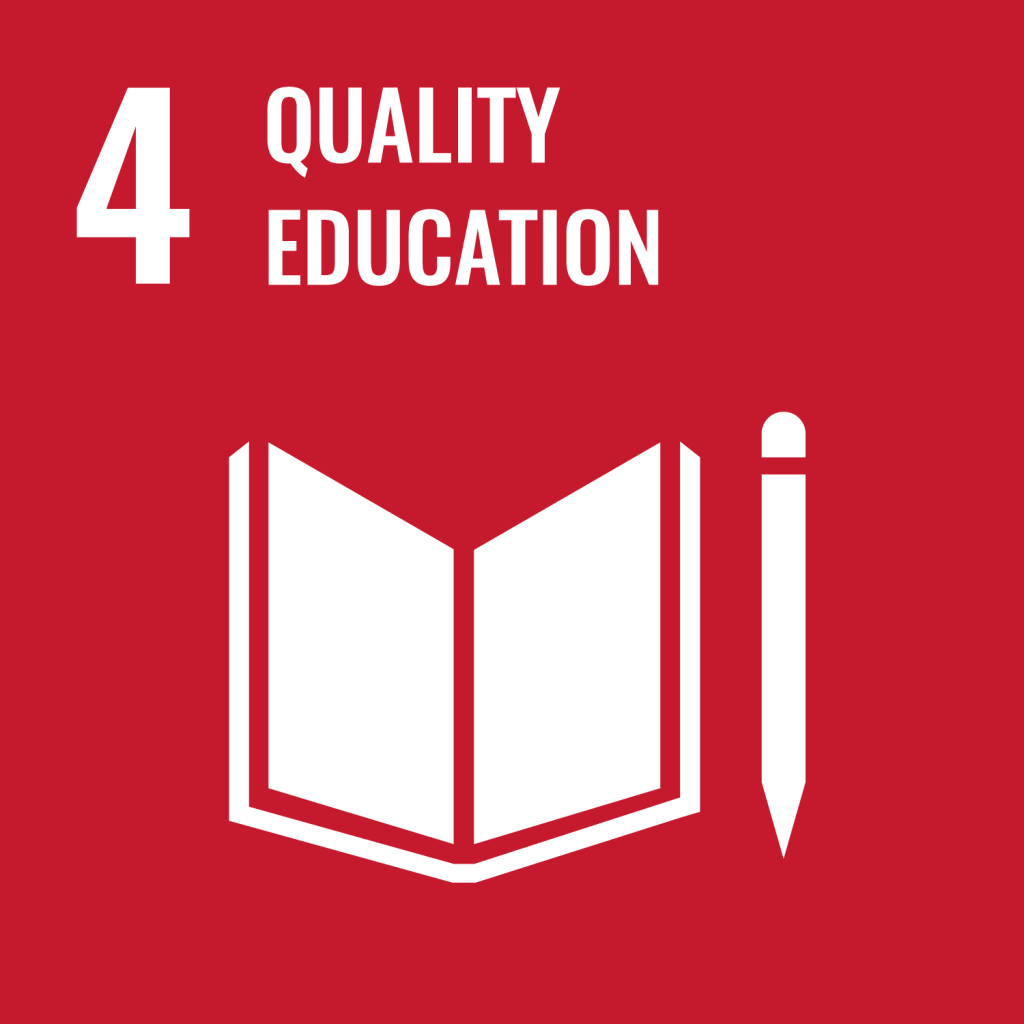

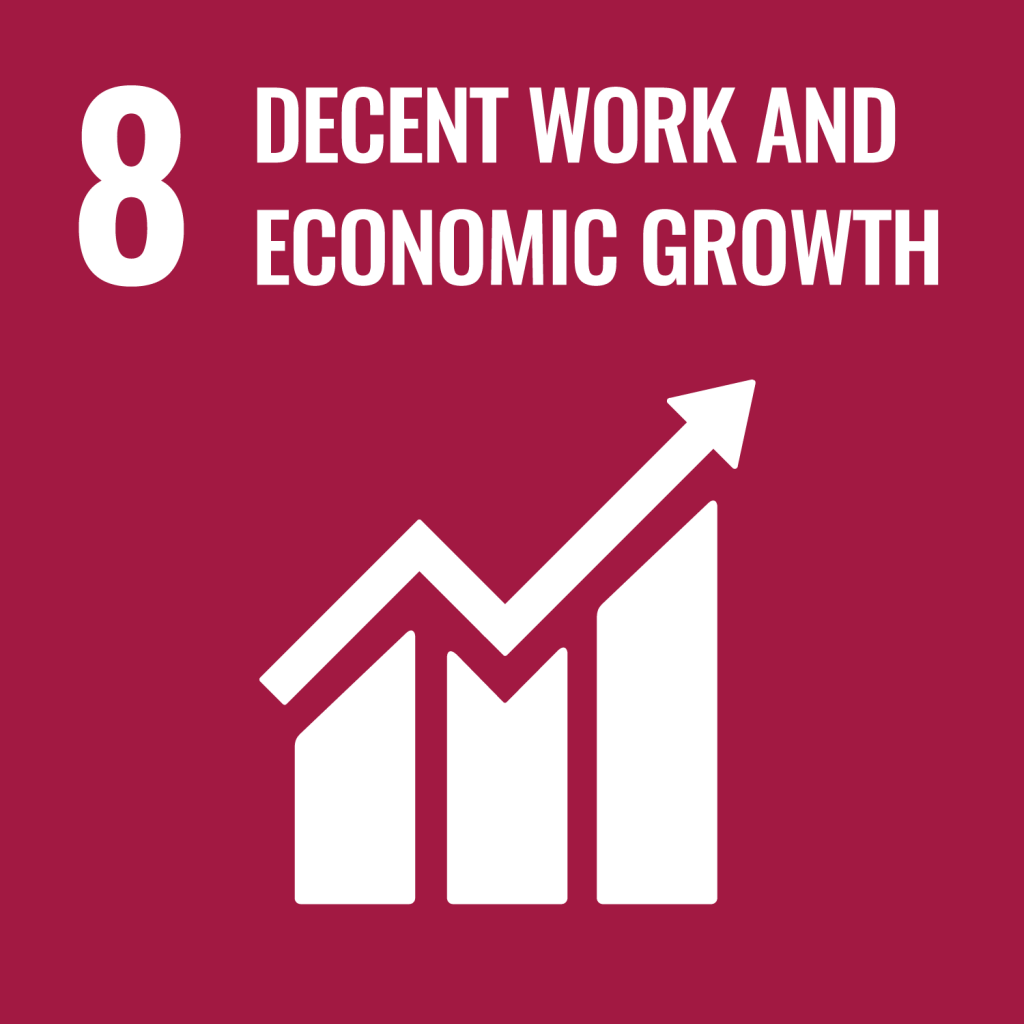
Management approach
Policy and approach
Toyobo group aims to realize its corporate philosophy framework, "TOYOBO PVVs," and to become an organization that continues to transform itself to create new value.
We put into operation the new human resource system in July 2022. implements specific policies such as promoting and supporting capacity building, treating and evaluating in accordance with job responsibilities, enhancing management skills, and encouraging the active participation of diverse professional human resources, so that each of our employees can feel growth, pride, and satisfaction.
Structure
The Executive Officer in charge of the HR Division is responsible for the group's human resources management. Our operating departments responsible for human resources and labor affairs create regular opportunities for discussion and information sharing with the departments responsible for human resources at each business site and affiliated company, which leads to the formulation and execution of human resources management plans. Regarding key issues in the annual management plan, reports are made to the relevant executive officer each quarter and the issues are also deliberated on by the Sustainability Committee. Important measures are also discussed by the Board of Corporate Executive Officers and Controlling Supervisors and Board of Directors.
Targets and KPIs
< Targets >
Toyobo group will build an organizational structure for the entire group that enables employees to work easily and feel satisfaction with their work, that ensures fairness and integrity, and that is considerate of diversity and human rights.
< KPIs and results >
| Initiatives | KPIs | Targets | Results (FY2024) |
|---|---|---|---|
|
|
|
|
|
|
|
|
|
|
|
|
|
|
|
|
|
|
|
- Targets for FY2026
Initiatives
Human resources development
Systems, education, and training for human resources development
Toyobo group considers human resources to be our most important asset. We support the growth of each and every one of our employees, while respecting their diversity. We believe that the continuation and development of the group as a whole can be achieved by building an environment in which our employees can flourish both inside and outside the company and realize their own potential.
Toyobo carries out human resource development based on a training program categorized by job level, type and objective, from the newly employed to top management. Over our long history, we have fostered an approach of valuing “people”—our most important asset—and this is shared throughout the group.
Based on this idea, under the Executive Officer in charge of the HR Division and is responsible for the execution of human resources management we have established a group specializing in human resource development and actively support training for employee skill development.
Education & training system
Education & training-related results
| Results (FY2024) | |
|---|---|
| Training hours per employee | 18.22hrs |
| Training investment per employee | ¥50,000 |
| Total training attendees | 2,709 |
| Total training hours | 43,340hrs |
| Implementation status of training in career and skills | 62% |
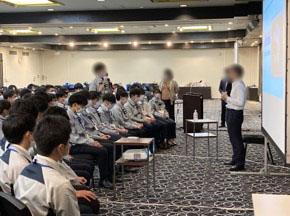
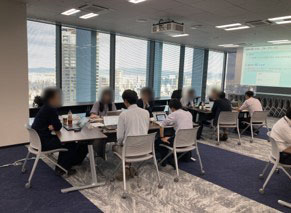
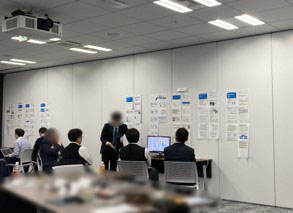
Training in FY2024
Main personnel systems
| Personnel appraisal system※1 | We perform personnel appraisals for all employees, with evaluations annually in October and interim checks in April. Employees and their supervisors together review the state of achievement toward goals, actions, and capacity development, then connect this to medium- to long-term growth and capacity development for individual employees. |
|---|---|
| Self-reporting system (Career Development Sheet) | This is a system by which individuals use the Career Development Sheet during personnel appraisals to express their career path-related wishes to the company. Individuals report to superiors their thoughts concerning their job category, location of work, and career. The supervisors then consider placement and personal development methods that will allow the employees to further grow and play active roles in the company. |
| Career challenge system (in-house recruitment) | This system is implemented as a component of human resources development to encourage employees to independently expand their careers and take on the challenge of new work. |
| Mirai Jinzai Juku | This in-house program for human resource development makes use of crowdfunding to promote the launch of new businesses. Employees gain practical experience in processes spanning product planning and development to sales. |
*1 Addresses all employees, including managers.
Nurturing the next generation of management
For Toyobo group's initiative to train the next generation of management, the group plans to provide chosen personnel with internal and external management executive development training. In order to further broaden their experience, we will also give them the opportunity to undertake business operation and management duties to hone their management skills, which will help us achieve our succession plan.
In response, from FY2022, the group has operated a Human Resources Conference to discuss measures for the development of next-generation management human resources. We divide this into a Company-Wide Human Resources Conference that mainly discusses successors for management posts and a Departmental Human Resources Conference that mainly discusses successors for highly specialized positions, and implement actions including policy support for the development of successor candidates as well as selection and rotation of human resources. By linking these two conference bodies, we will uncover and develop human resources and increase their effectiveness.
At the same time, we are promoting diversity and inclusion in order to increase our medium to long term capabilities. Besides promoting the participation and advancement of women, we are actively taking on mid-career hires and staff from overseas so that we can bring in more knowledge and experience.
Under our TOYOBO PVVs corporate philosophy framework, we conduct company-wide training for all management positions to ensure awareness of security and disaster preparedness, occupational safety, quality, and compliance, and to advance organizational initiatives.
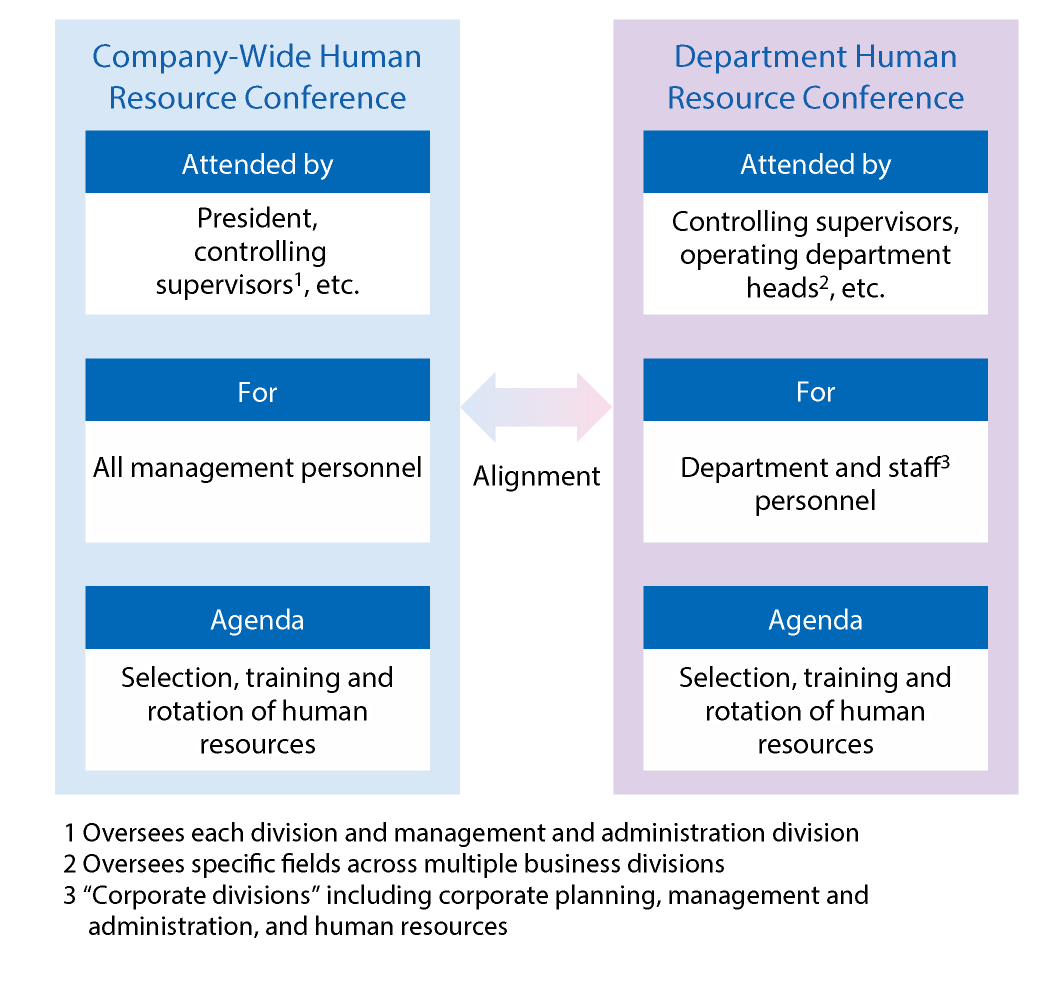
Developing global human resources
Toyobo implements “Short-term Overseas Business Training” in which around 10 employees in two separate groups from Japan are sent overseas for training each year (first and second half of the year). This motivates younger and mid-career employees to participate in Toyobo’s global business, and also represents a major opportunity for them to further their careers.
In addition, local candidates for management from overseas group companies are selected to undergo training in Japan twice each year. This aims to enhance their understanding of Toyobo and deepen interaction with employees who work in Japan.
“Short-term Overseas Business Training” resumed in the second half of FY2023, with approximately 10 participants annually. The training for local candidates for management from group companies resumed in the second half of FY2024 after a four-year hiatus, with seven participants from five countries, namely Brazil, India, the United States, Taiwan, and South Korea.
Initiatives for preventing harassment
Toyobo group strives to maintain harassment-free workplace environments and we are focusing on anti-bullying and anti-harassment measures based on an approach that providing work incentives and raising job satisfaction leads to the securement and cultivation of excellent human resources. As a preventative measure, we are implementing management training to deepen understanding within the organization, and as a response measure, we carry out thorough internal reporting through the compliance consultation centers and the Complaint Handling Committee, which includes labor union representatives, so that we can detect and solve issues at an early stage.
- Efforts for establishment of complaint handling and internal reporting systems
- Compliance consultation desks
Employee engagement
Under a relationship of equality between the company and individual employees, it is necessary that we align the vectors of organizational goal achievement and personal growth. Toward this end, in 2021 we launched a survey on organizational climate and job satisfaction, targeting all officers and employees.
These surveys will keep us periodically appraised of employee engagement, and create an environment in which they can proactively work with a sense of pride and fulfillment.
Engagement survey results
We conducted the second Engagement Survey in September 2022. In addition to communicating an overview of the survey results to employees, we offer feedback on the survey results at the workplace level and are advancing dialogue and action plans within workplaces.
(Year)
| Increase in employee work satisfaction based on engagement survey | 2022 | 2023 |
|---|---|---|
|
38% | Not implemented |
|
50% | Not implemented |
Scheduled for FY2025
Work-life balance
Measures for the reform of working style
Toyobo group is engaged in work style reform so that our employees can work with renewed efficiency and achieve a good balance between work and personal life. We also provide support such as the Childcare Shortened Work Hour Program, nursing care and flextime system, and telecommuting. Building an environment that enables more flexible work styles tailored to each employee's life stage provides an opportunity to enhance creativity. Letting each individual do their best with confidence, pride, peace of mind, and a forward-looking mindset helps to build a stronger foundation for the company.
The TOYOBO Group Charter of Corporate Behavior declares, “We will respect employee diversity and support work practices that allow employees to demonstrate their individual skills. Moreover, we will provide workplaces that are conducive to productive work while taking health and safety into consideration.”
Development of systems
Toyobo has introduced schemes that go above and beyond the legal requirements, including the Childcare Shortened Work Hour Program and nursing care leave, and we also provide a flextime system. Since fiscal 2020, five days of paid leave has been offered as Childcare Leave. In conjunction with this change in the system, we are encouraging men to take childcare leave. Men employees who have a child are notified of the system individually and are recommended to take this leave by their immediate supervisor. We will continue these promotion efforts until it becomes normal for men employees to take childcare leave.
We introduced a 15-Minute Shortened Work Hour Program at head and branch offices in FY2018, and at the Research Center in FY2019.
We are also increasing the number of days of leave at other offices and we are creating opportunities for employees to spend quality personal time together with family and friends, such as holding a No Overtime Day at least once a month. In fiscal 2020, we introduced a Teleworking scheme at head and branch offices, and have expanded to also include other offices in fiscal 2021.
Scheme usage
(FY)
| 2020 | 2021 | 2022 | 2023 | 2024 | |
|---|---|---|---|---|---|
| Women taking childcare leave | 27 | 30 | 32 | 39 | 33 |
| Ratio of women taking childcare leave (%) | 100 | 100 | 100 | 100 | 100 |
| Men taking childcare leave | 50 | 69 | 58 | 98 | 85 |
| Ratio of men taking childcare leave (%) | 46 | 80 | 64 | 104.3 | 97.7 |
| Employees taking childcare shortened work hour program | 64 | 70 | 67 | 83 | 97 |
| Annual paid leave utilization ratio (%) | 73 | 64 | 72 | 80 | 83 |
| Taking telecommuting systems | 206 | 2,045 | 2,413 | 2,520 | 2,357 |
Childcare leave utilization
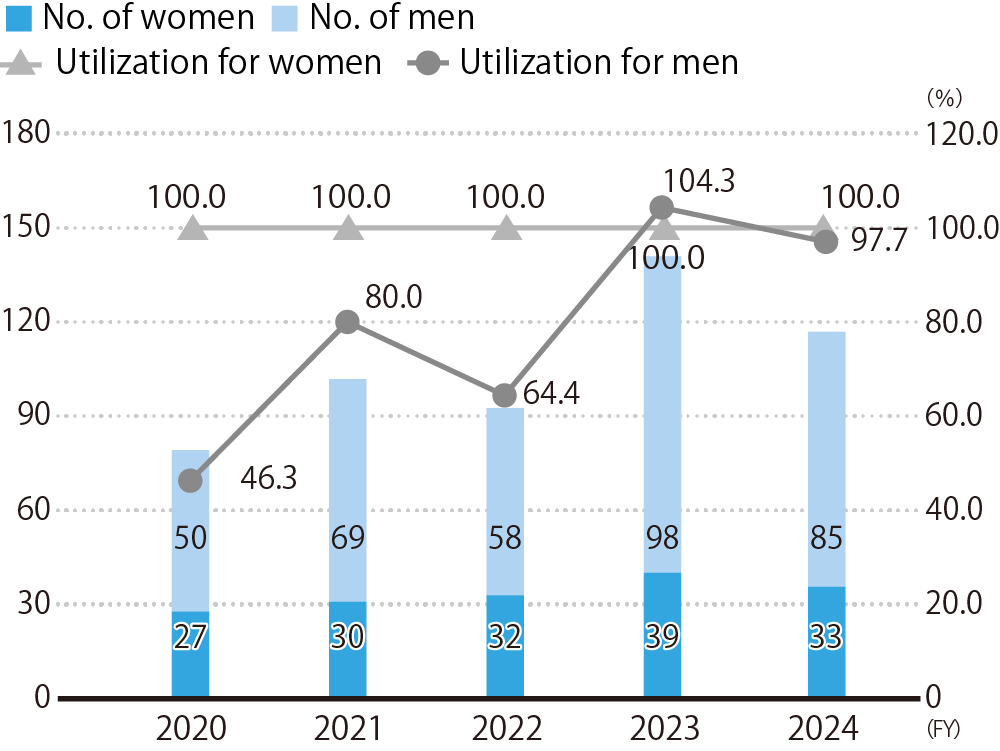
Main support systems
| Main system | Details | |
|---|---|---|
| Systems supporting diverse work styles | Teleworking scheme | Employees can work outside the office, in principle at their home. Can be used in conjunction with Half-Day Annual Leave, Childcare and Nursing Care Shortened Work Hour Programs, and the Flextime system. |
| Flextime system | Managed in one-month installments with core time set from 11:00 to 14:00. Introduced in 1990. | |
| Half-day annual leave | Annual paid leave can be taken in half-day installments. Introduced in 1990. | |
| Volunteer leave | Applies to employees participating in the Japan Overseas Cooperation Volunteers initiative. In principle, leave can be up to two years and four months. | |
| Systems supporting work-life balance | Childcare leave | Can be taken up to the day the child turns two. * Salary is paid from the first day for a period of up to five consecutive days |
| Childcare shortened work hour program | One workday can be shortened in 15-minute installments up to two hours. However, the period from 10:00 to 16:00 has to be worked (including designated breaks). (Can be used up to the child finishes the third grade of elementary school) |
|
| Nursing care leave | Can be taken up to three times per case (same illness of the same family member) for a maximum of 366 days (which can be taken in installments). | |
| Nursing care shortened work hour program | Designated work hours for a single day can be shortened by up to two hours for up to two times per case (same illness of the same family member). | |
| No overtime day | At least once a month, employees are able to spend quality personal time together with family and friends as an opportunity to improve motivation and enhance creativity. | |
| Childcare facilities | In April 2018, a nursery was established inside the Research Center. | |
| Babysitters | The company assists with babysitting expenses during business travel and company-designated training. |






